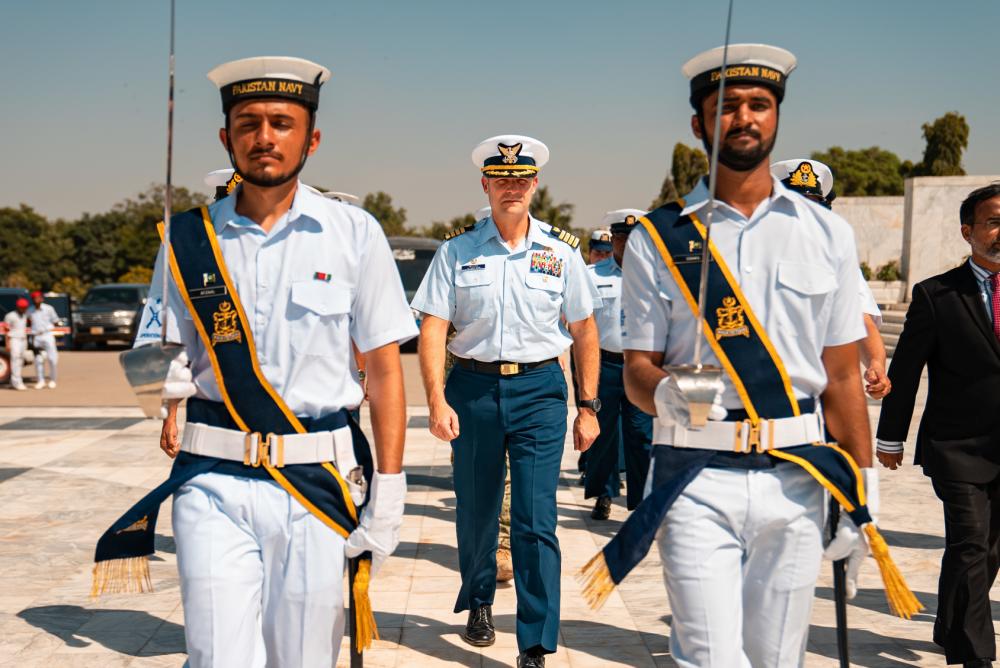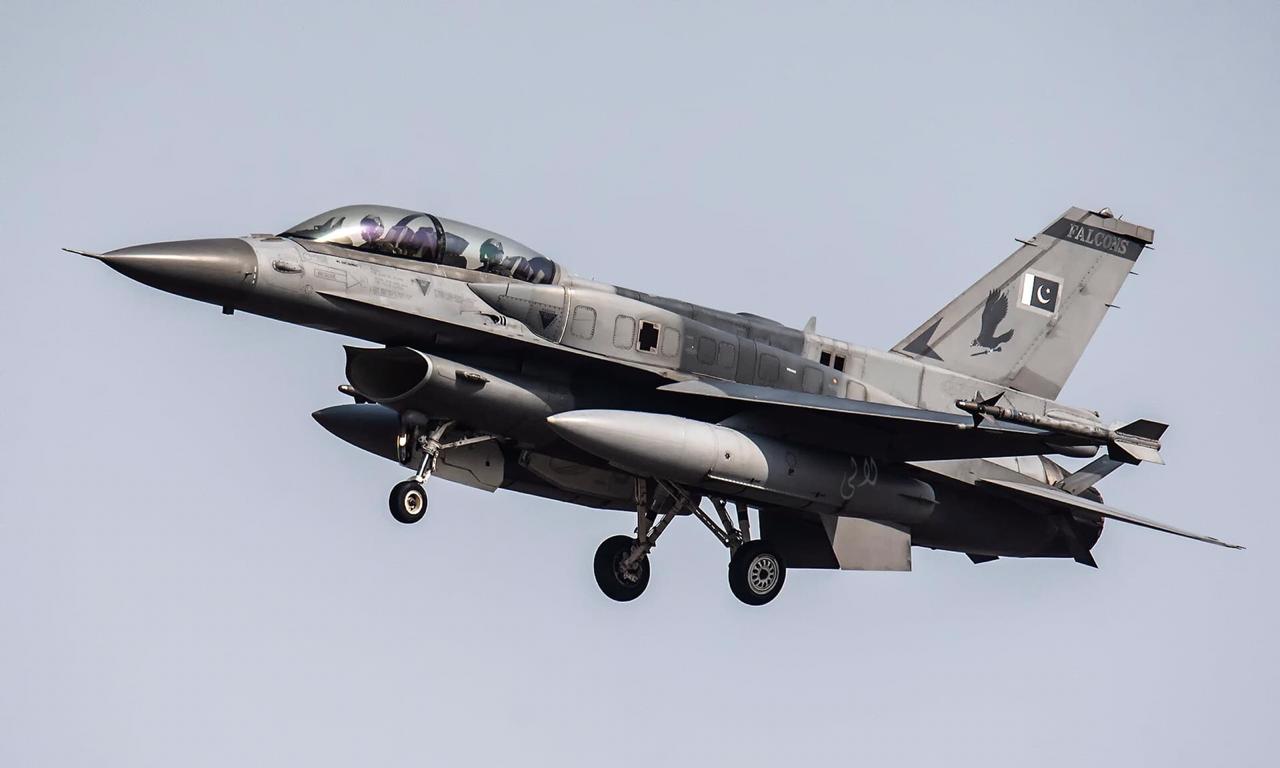The two US Coast Guard ships made a scheduled port call at Karachi, Pakistan, from October 6 to 9 to reflect the strong relationship between the forces of the two countries.
The visits were made as part of an ongoing series of joint exercises and technical exchanges between the United States and Pakistan, the US Naval Forces Central Command said in a statement. The statement further said that the US Coast Guard ships, USCGC Charles Moulthrope and USCGC Emlen Tunnell, are forward-deployed to the US 5th Fleet to support the protection of maritime stability and security throughout the Middle East. The US Navy’s Fifth Fleet is essential to the US’s presence in the Middle East. The Arabian Gulf, Gulf of Oman, Red Sea, and a portion of the Indian Ocean are all included in the nearly 2.5 million square miles of water that make up the US 5th Fleet’s operational area. The stretch spans 21 nations and features three crucial choke points at the Suez Canal, the Strait of Hormuz, and the Strait of Bab el Mandeb at Yemen’s southernmost edge.
“We are extremely excited to visit Pakistan as we build our relationship in a very dynamic region,” said US Coast Guard Capt. Eric Helgen, commodore for Patrol Forces Southwest Asia. He added that the recent visit demonstrated the close relationship between the Pakistan Navy and the US 5th Fleet.

“Our ties are strong and enduring, built on staff exchanges and joint exercises to enhance coordination and cooperation. Many US Navy ships have visited Pakistan over the years, which reflects the continued strong relationship and cooperation between Pakistan and the US,” said Helgen.US Coast Guard members met Pakistan Navy representatives in Karachi to discuss maritime security-related issues. In addition, they played volleyball and soccer with teams from the Pakistan Naval Academy and paid a visit to the tomb of Pakistan’s founder, Muhammad Ali Jinnah.
The close coordination between the two nations’ naval forces is also attributable to Pakistan’s membership in Combined Maritime Forces (CMF), the largest maritime partnership in the world. The 34 member-nations of the CMF, which has its headquarters in Bahrain alongside the US 5th Fleet, operate their armed forces in the Red Sea, Gulf of Aden, Northern Arabian Sea, Gulf of Oman, Arabian Gulf, and the Indian Ocean.A vice admiral of the US Navy, who also commands the US Fifth Fleet and US Naval Forces CENTCOM, is in charge of the 34-nation partnership. On the other hand, India declared that it would become an associate partner of the CMF at the India-US 2+2 in April this year.
Under this, the Indian Navy took part in its first exercise in late September as an associate member of the Bahrain-based multilateral partnership Combined Maritime Forces (CMF).
US-Pakistan Partnership
In a series of events over the past few weeks, the US has demonstrated its readiness to support Pakistan’s economy and the current Shehbaz Sharif government, despite India’s objections.
For instance, during his visit to Pakistan-controlled Kashmir, the US envoy to Pakistan, Donald Blome, used the abbreviation “AJK,” which stands for “Azad (Free) Jammu and Kashmir,” the name given to the Kashmir region administered by Pakistan.
On October 7, India protested Donald Blome’s decision to visit Pakistan-controlled Kashmir and referring the disputed region as AJK. The Indian government’s opposition to the US envoy’s visit had been communicated to Washington, according to Arindam Bagchi, spokesperson for the ministry of external affairs.
This comes just a few weeks after Washington authorized a maintenance package for Pakistan’s F-16 fleet. According to the Biden administration, the package was required for counterterrorism operations. India, on the other hand, has rejected this logic.

During a recent trip to the United States, External Affairs Minister S Jaishankar said that the United States’ argument was “not fooling anyone.”
“At the end of the day, for someone to say I am doing it because it is for counterterrorism when you are talking of an aircraft of the capability of an F-16, everyone knows where they are deployed, what is its use, what is its capability. You are not fooling anybody by saying these things,” Jaishankar said.
Nevertheless, the latest chain of events has re-ignited the US’ transactional relationship with its major non-NATO ally, Pakistan. Many geopolitical experts also contend that the US is aiding Pakistan to prevent former prime minister Imran Khan from regaining power.



